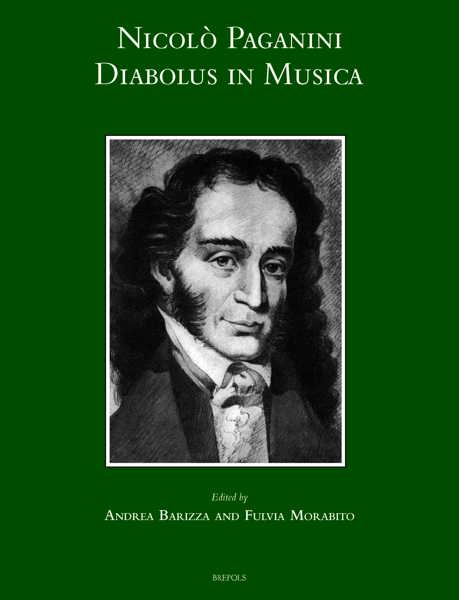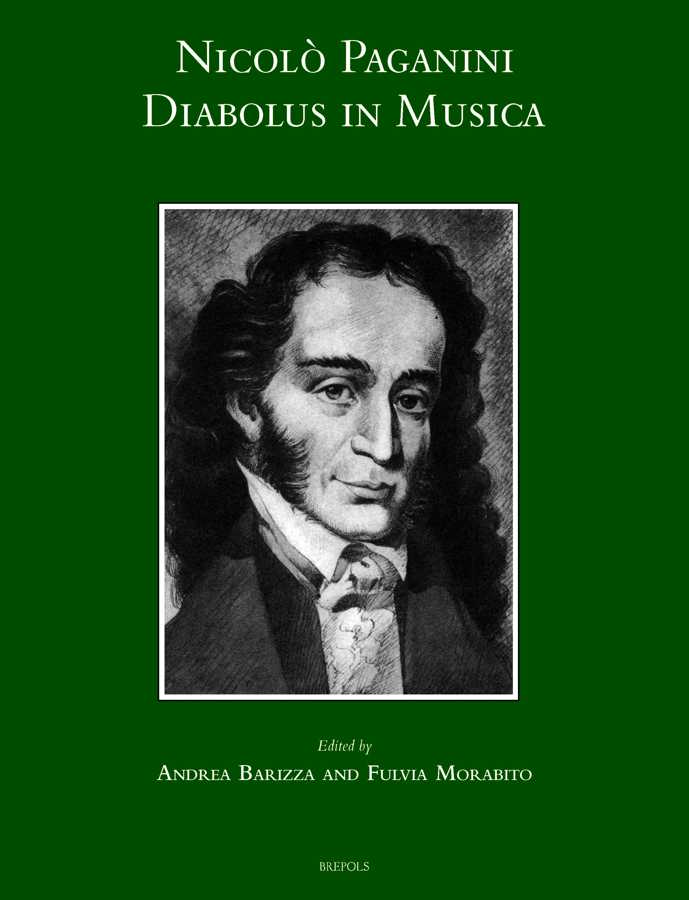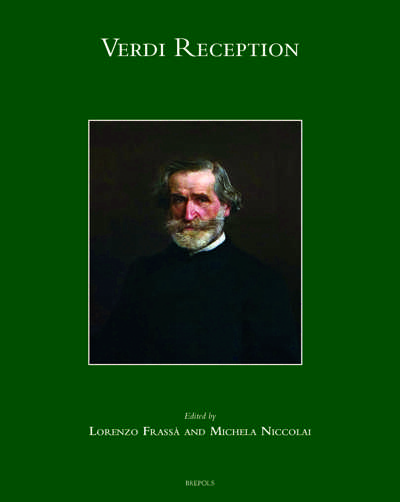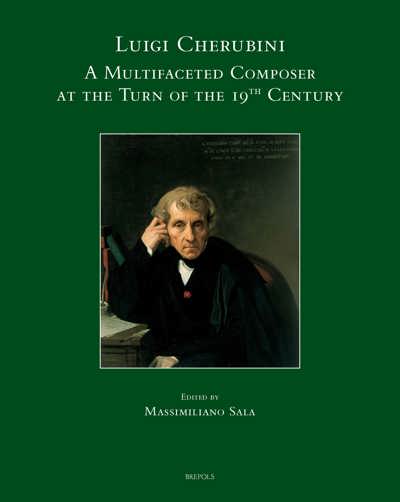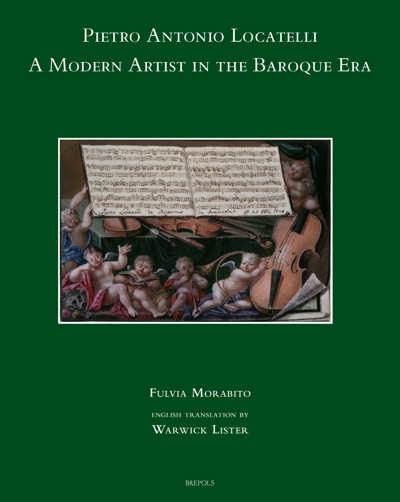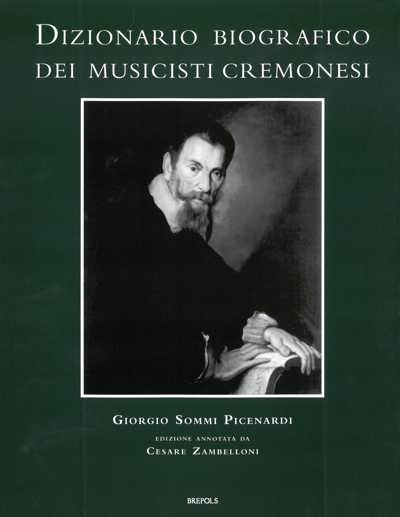
Nicolò Paganini: Diabolus in Musica
Andrea Barizza, Fulvia Morabito (eds)
- Pages: 580 p.
- Size:210 x 260 mm
- Illustrations:35 b/w
- Language(s):English, Italian
- Publication Year:2010
- € 90,00 EXCL. VAT RETAIL PRICE
- ISBN: 978-2-503-53533-3
- Hardback
- Available
Paganini is considered to be the greatest violin virtuoso of all time. He was a virtuoso who relied on the astonishment that he aroused in those who heard him. One of the criticisms that he himself addressed to other violinists was that they failed to ‘surprise’ the audience. Paganini, on the other hand, succeeded. But to what extent? Much was due to the improvisational side of his music. Whenever he played, he was unable to perform a piece without enriching it not only with virtuoso embellishments, but also with accents and colouristic inflections. The true novelty of his violin idiom can be identified in the probing of the instrument’s sonic potential and in the peculiarities of gesture. Perhaps we should consider him not so much as a virtuoso musician but as a representative of a new generation of composers for whom emphasis was a positive, constructive quality, whether it be connected to sound, gesture and improvisation or to ‘technical’ display.
In this book, edited by Andrea Barizza and Fulvia Morabito, about thirty scholars investigate different aspects of the life and works of Nicolò Paganini, and his relationship with the 18th- and 19th-centuries school of the Violin technique.
Preface
Paganini and the Bravura Tradition
Robin Stowell, The 'Diabolus in Musica' and 'Paganini Redivivus' Phenomena, with Some Thoughts on Their Relevance to the ‘German Paganini’ [August Wilhelmj (1845-1908)] – Clive Brown, Polarities of Virtuosity in the First Half of the Nineteenth Century – Anne Penesco, «Il violino del Diavolo» e il gusto musicale dei Francesi – Renata Sukowiejko, Paganini in Poland and Polish ‘Paganinis’ – Harald Herresthal, Ole Bull — «The Nordic Paganini»
Paganini’s Works
Philippe Borer, The Chromatic Scale in the Compositions of Viotti and Paganini: A Turning Point in Violin Playing and Writing for Strings – Mariateresa Dellaborra, Il concerto «secondo con un campanello obligato»: problemi di prassi esecutiva – Rohan H. Stewart-MacDonald, Motivic Processes, Dramatic Dialogue and Narrativity in Paganini’s Violin Concerto No. 1 in E flat Major, Op. 6 – Danilo Prefumo, Nicolò Paganini: gli Studj n. 4 per violino solo. Problemi di autenticità – Italo Vescovo, Opere cameristiche di Nicolò Paganini di recente scoperta: modelli formali e aspetti filologici
Paganini and Italy
Carmela Bongiovanni, Virtuosi e musica per virtuosi tra fine Settecento e primi Ottocento a Genova – Luigi Sisto, Nicolò Paganini a Napoli (1816-1821) – Matteo Mainardi, Paganini e Milano – Antonio Carlini, L’altro violino: istinto e bisogno fra i violinisti popolari al tempo di Paganini
The Reception of Paganini’s Music
Rosalba Agresta, Les Concerts de Paganini à Paris (1831) – Cécile Reynaud, François-Joseph Fétis et Paganini – Michela Niccolai, Un virtuosismo da operetta: Paganini di Franz Lehár (1925) – Mai Kawabata, Paganini’s Legacy
Paganini and Violin Schools of the Eighteenth and Nineteenth Centuries
Gregorio Carraro, I trii per due violini e basso di Francesco Zannetti (1737-1788). Testi e contesti nella tradizione violinistica italiana del secondo Settecento – Diane Tisdall, ‘Violoniste Chanteur’ versus ‘Violoniste Virtuose’: Contextualising the Technical Demands of Viotti’s Violin Repertoire – Tatiana Berford, Giovanni Battista Viotti: un altro predecessore paganiniano – Antonio Caroccia, Paganini e la scuola violinistica partenopea – Enrica Donisi, I rapporti di Nicolò Paganini con Gaetano Ciandelli e Onorio de Vito – Flavio Menardi Noguera, Nicolò Paganini e Camillo Sivori: l’anello forte della scuola ligure del violino – Paolo Sullo, I 'Solfeggi' di Alessandro Rolla nella didattica violinistica del xix secolo – Renato Ricco, L’eredità di Nicolò Paganini nelle musiche di Camillo Sivori e Antonio Rolla
Paganini and the Piano
Marina Esposito, 'Le Souvenir de Paganini' di Fryderyk Chopin – Andrea Malvano, «Il lato poetico della composizione». La recezione schumanniana dei 'Capricci' di Paganini – Klimis Voskidis, Paganini Meets Pianism: The Influence of the Violin Virtuoso on Liszt’s and Thalberg’s Pianistic Writing – Adalberto Maria Riva, Differenti tipologie di trascrizioni per pianoforte da Paganini
Index of Names
